When it comes to natural remedies, it’s (sadly) very true that a lot of people can’t afford natural options.
Conventional options are often super cheap in generic options, and are sometimes covered by insurance. This means that many families who would like to try some natural options often feel stuck using the conventional options, because that’s what they know and can afford.
I get it. I do. Budget concerns are a real thing. And, many people feel like trying to do natural remedies is just…so foreign to them. There’s a lack of knowledge about this stuff in society. Ancient wisdom has been destroyed instead of passed on.
But it’s time to change that. Natural remedies are for everyone. Everybody deserves access to these, no matter what their budget or knowledge level.
What follows are some very simple natural remedies for common needs. They are very affordable, easy to obtain, and very easy to prepare and use. If you can make tea, you can make these.
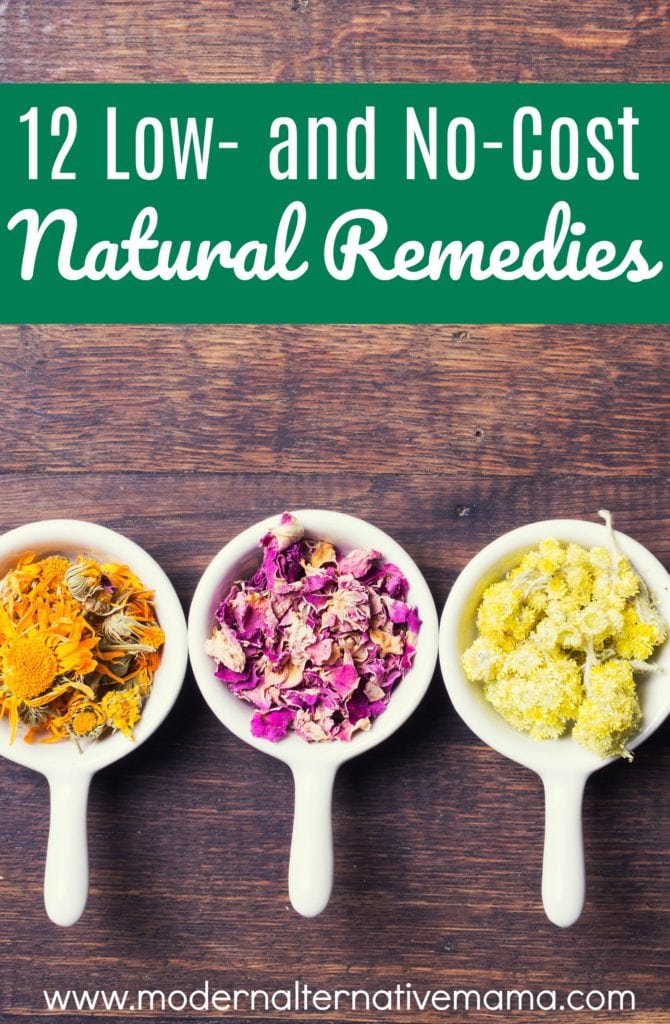
12 Low- and No-Cost Natural Remedies
Most of these are available at an average grocery store or even in your own backyard! They can be used fresh, or dried (instructions for drying included — no special equipment needed).
To prepare these remedies, you will need:
- Saucepan
- Water
- Spoons
- Jars
- Coffee/tea mugs
- Wash cloth
- Oil (olive other ‘safe’ choice)
- Raw honey (can use sugar or skip this if needed)
- Oven
- Vodka (optional)
Basically, items any decent kitchen would have. This is great for absolute beginners!
Do not be intimidated by some of the newer methods or options on here. I promise, they are easy and I will give you step-by-step instructions. You can do this!
With every option here, talk to your doctor if you are taking any medication. Some natural remedies can interact with drugs. We are not doctors and cannot advise on possible interactions.
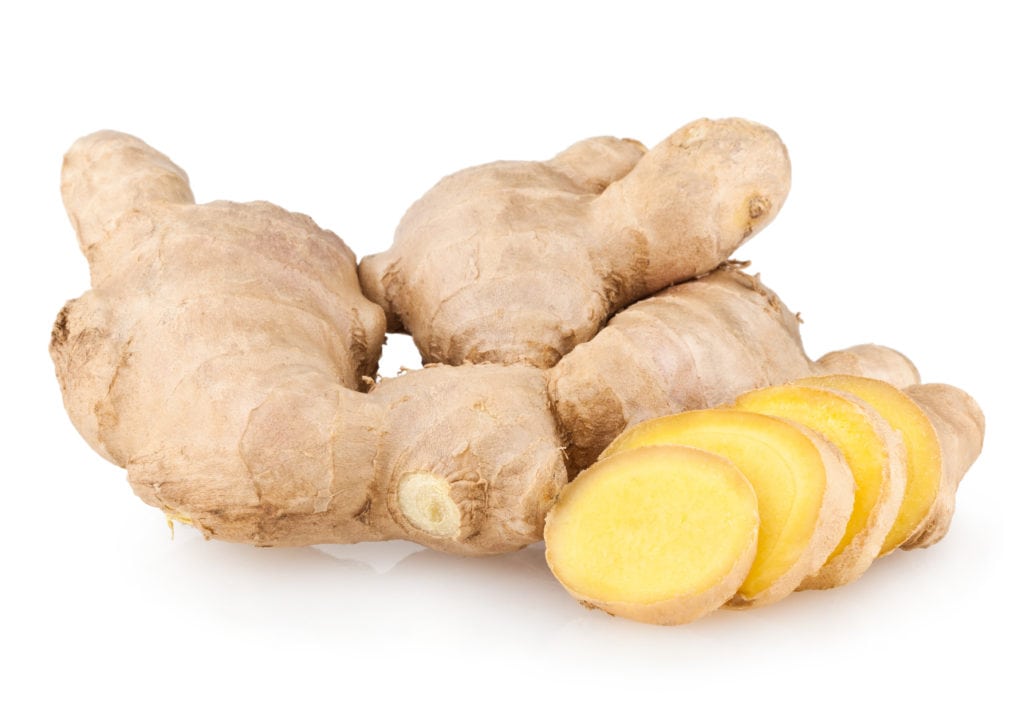
Ginger
Where to find: Almost any grocery store.
Cost: About $1 for a small piece
How to Prepare
- Step 1: Slice 2 – 3 pieces about 1/2″ thick each
- Step 2: Add 2 cups of water and ginger slices to a small saucepan.
- Step 3: Bring to a boil, and boil for 10 min., until the water is golden.
- Step 4: Use a spoon to remove the ginger pieces. Pour the tea into a mug.
- Step 5: Lightly sweeten if desired (raw honey is best), add fresh lemon juice if you prefer. Sip warm.
Use for: Sore throats, coughs, upset stomachs, motion sickness.
Dose: 1 – 2 cups as needed.
Safety: Use for all ages. Caution if you have a clotting disorder or will be undergoing surgery.
Dandelion Root
Where to find: Go out in the backyard and find a dandelion plant, and dig up the roots or collect the blossoms. Best to harvest roots after rain, as they are easier to dig. (Make sure it’s not sprayed.)
Cost: FREE
How to Prepare
To Dry and Save:
- Step 1: Rinse them off well, then chop them up in 1/2″ pieces.
- Step 2: Place on a cooling rack on top of a cookie sheet (or just a cookie sheet) and dry in the oven at 170 for about 12 hours, stirring every couple hours. Make sure they are totally dry.
- Step 3: Place dried roots in a bag or jar and store in a cool, dry place (cabinet).
- Step 4: Place roots in the oven at 300 and roast until they are browned, about 30 – 45 min. Makes a great coffee substitute! (OPTIONAL)
Root Tea:
- Step 1: Place 1 tbsp. in a saucepan with 1 cup water.
- Step 2: Bring it to a boil, and boil for 10 min.
- Step 3: Use a spoon to remove the roots
- Step 4: Sweeten if desired; drink warm
Root Tincture:
- Step 1: Place about 1/2 cup roots in a jar that has a lid.
- Step 2: Pour vodka (80 – 100 proof) to cover the roots, about 1 cup.
- Step 3: Add a lid, shake, and set in a cabinet for 6 weeks. Shake occasionally.
- Step 4: Strain the liquid through a wash cloth or kitchen strainer. Reserve liquid; discard herbs.
- Step 5: Store liquid in a jar (preferably dark glass, but any will work).
Use for: Liver support (if you aren’t digesting food well, have musty-smelling breath, feel very tired and run down, often have upset stomachs, you might need liver support), morning sickness, constipation, kidney health/UTIs, some headaches.
Dose: 1 cup of tea, or 1 ml of tincture (about 1/4 tsp)
Safety: If you have chronic liver or kidney diseases, talk to your doctor first.
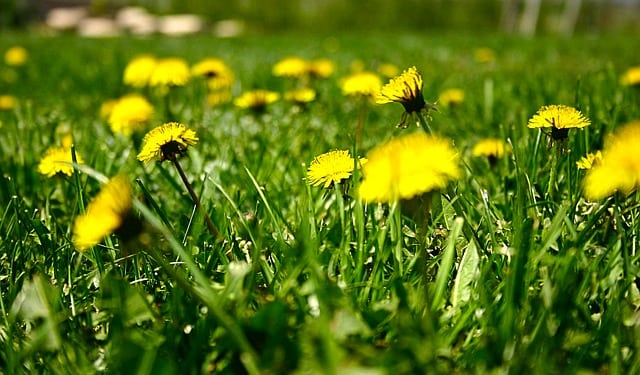
Dandelion Blossoms
Where to find: Your backyard! Parks may also have them.
Cost: FREE
How to prepare
- Step 1: Lay on a tray and set in the sun to dry for 1 – 2 days
- Step 2: Place 1/2 cup in a jar, and cover with oil by 1/2″
- Step 3: Add a lid, and place the jar near a sunny window for 2 – 3 days
- Step 4: Strain through a wash cloth, squeezing out all the oil (reserve oil; discard or compost blossoms)
- Step 5: Store oil in a glass jar in a cool, dry place for up to a year
- Step 6: Mix 1/4 cup oil with 1 tbsp. beeswax in a small saucepan. Melt over low heat. Pour into a small jar and allow to cool and harden.
Use for: Dry skin, minor rashes, sore muscles, bruises
Dose: Rub a small amount on skin as needed
Safety: Safe for all ages
Dandelion Leaves
Where to find: Your backyard!
Cost: FREE
How to prepare
Fresh leaves can be washed and added to salads. They are a little bitter, and best mixed with other greens.
Tea:
- Step 1: Place fresh or dried leaves in a cup (about 1 tbsp)
- Step 2: Pour boiling water over the leaves, and allow to steep for 10 – 15 min.
- Step 3: Strain, using a wash cloth or kitchen strainer. Sweeten as desire and drink.
Infusion:
- Step 1: Place 1 cup of leaves in a quart-sized jar
- Step 2: Pour boiling water over the leaves to fill the jar
- Step 3: Add a lid, and steep overnight (8 – 12 hours)
- Step 4: Strain, sweeten if desired, and drink
Use for: As a source of bitter foods (improves digestion), for a natural vitamin/mineral boost.
Dose: 1 – 4 cups of tea; 2 – 3 cups of infusion (twice weekly)
Safety: Caution if you are taking diuretics or have kidney/liver issues (this is a diuretic).
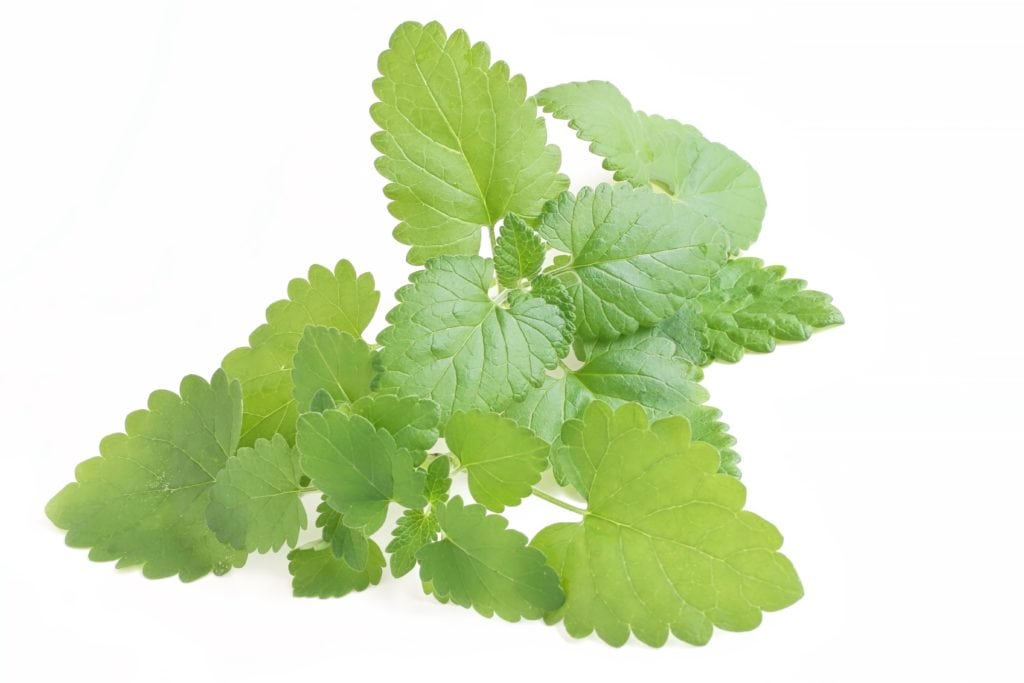
Mint
Where to find: Mint grows wild in a lot of places, or ask a friend for a cutting of a plant. The’re also available at garden stores, and they are perennial, so buy one and plant it for fresh mint for years! Just be aware that mint is invasive, so consider planting in a pot and not directly in the garden. (Unless you want a LOT of mint and your other plants to die.)
Take 6 – 8 leaves and put in boiling water for 5 min, then strain.
Cost: $2 – $4 for a plant; FREE if you have a friend!
How to Prepare
- Step 1: Place 6 – 8 mint leaves (or 1 tbsp dried mint) in 2 cups of water
- Step 2: Bring to a boil, then turn it off and let it steep for 10 – 15 min.
- Step 3: Use a spoon or strainer to remove mint leaves.
- Step 4: Sweeten lightly, if desired, and enjoy warm. Or add ice and enjoy cold.
Alternative: Use 1/2 cup of leaves instead, and pour the “tea” into a bath!
Use for: Sore throats, upset stomachs, gas or bloating, fevers (in bath or as tea)
Dose: One cup of tea, or one bath
Safety: Safe for all ages
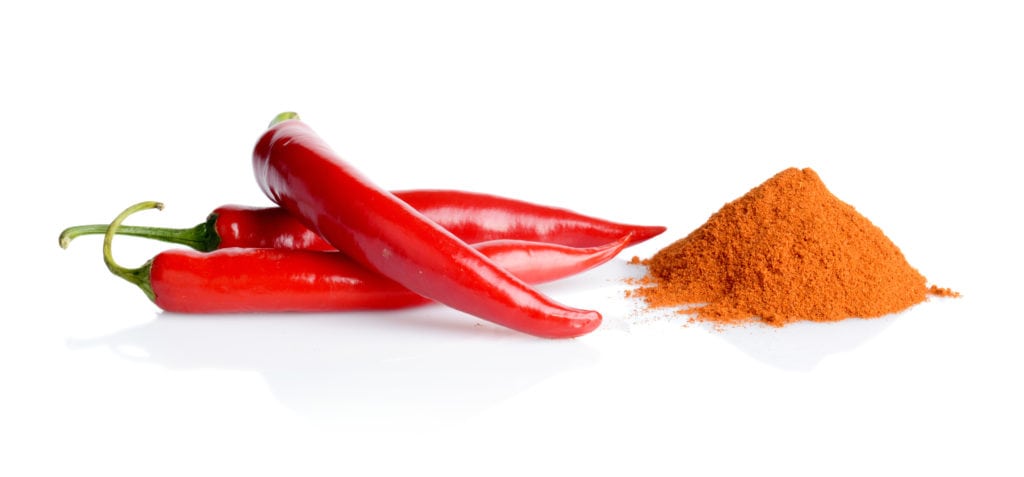
Cayenne Pepper
Where to find: Available in the spice at any grocery store
Cost: $3 – $5 for a bottle (HERE, or organic HERE)
How to Prepare
- Step 1: Mix 1/8 tsp. of powder into a drink or small amount of honey
- Step 2: Consume
Use for: Heart health, indigestion, upset stomach, detox, pain, bleeding (sprinkle a bit on a wound — this will hurt though!)
Dose: 1/8 tsp, although over time you can take more
Safety: Safe for all ages
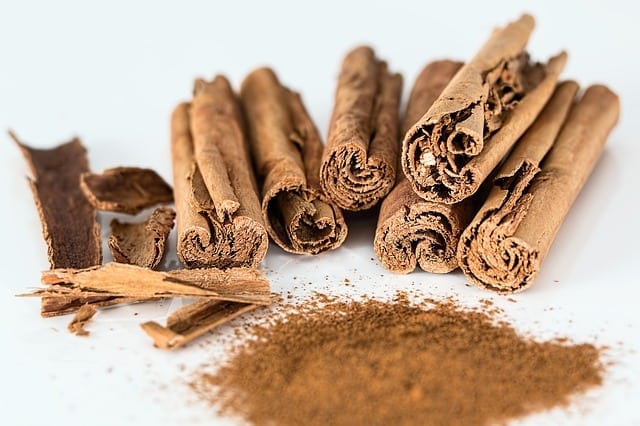
Cinnamon
Where to find: Available at any grocery store in the spice aisle (or HERE)
Cost: $3 – $5
How to Prepare
- Step 1: Mix 1/4 tsp. into 1 tbsp. raw honey and eat it, or mix into a drink
Use for: Poison ivy inflammation, sore throats, general illness, healthy blood pressure levels, gut health
Dose: 1/4 tsp. daily or as needed
Safety: Safe for all ages
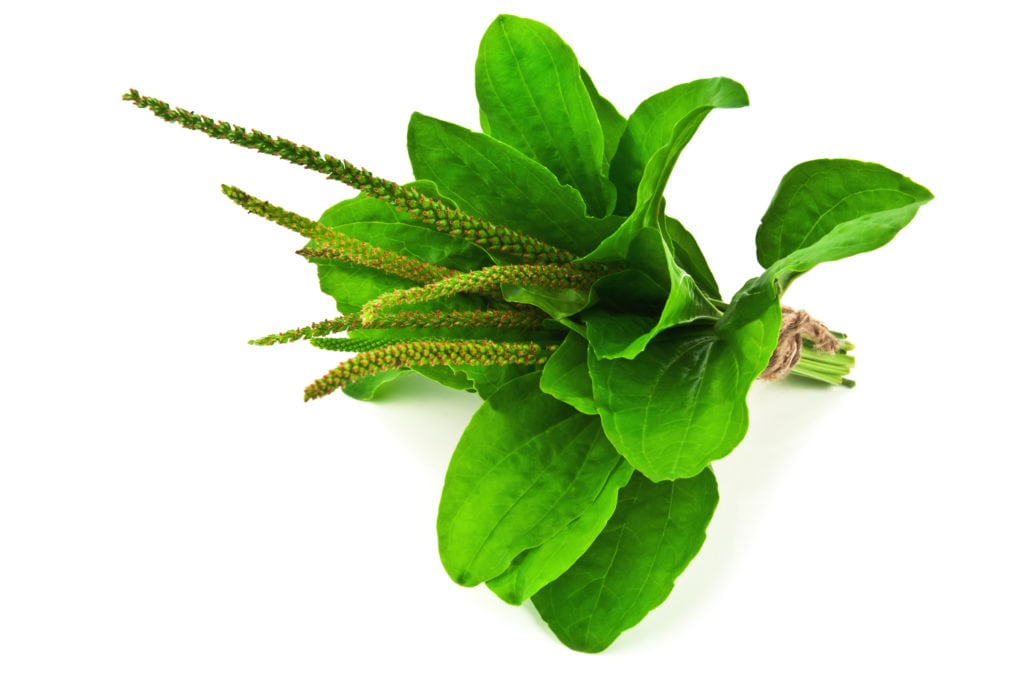
Plantain
Where to find: In your backyard
Cost: FREE!
How to Prepare
- Step 1: Pick fresh leaves, and leave them in a sunny spot to dry (away from wind so they don’t blow away!)
- Step 2: Place 1/2 cup leaves in a small jar and cover with oil
- Step 3: Add a lid, and place the jar near a sunny window for 3 – 4 days
- Step 4: Strain through a wash cloth, reserving the oil and discarding the leaves
You can also mash the fresh leaf and use it immediately, or store dried leaves for later.
Use for: Poison ivy, bug bites, rashes, cuts and scrapes, sunburn or other minor burns
Dose: Rub a small amount of the oil on skin as needed
Safety: Safe for all ages
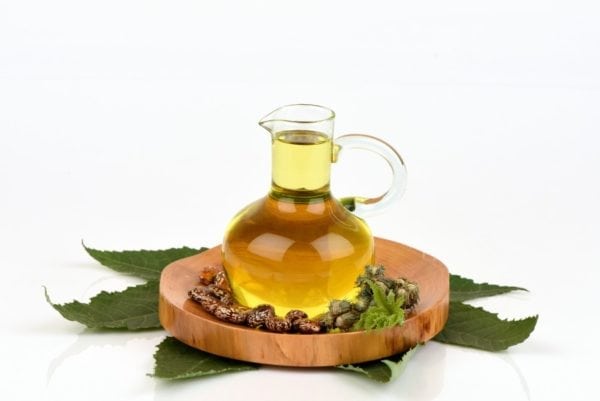
Castor Oil
Where to find: At a drug store or grocery store’s pharmacy (or HERE)
Cost: $4 – $5 for a small bottle at a store; around $10 for a big bottle online
How to Prepare
- Step 1: Fold a wash cloth in half.
- Step 2: Pour about 1 tbsp. castor oil on it and let it soak in
- Step 3: Lie down in a comfortable place, with clothes off or out of the way
- Step 4: Place the cloth, oil side down, on whatever area you want to treat (see uses)
- Step 5: Cover with a plastic bag to keep the mess in
- Step 6: Cover the cloth with a small towel and a heating pad
- Step 7: Rest for 30 – 60 minutes!
- Step 8: Remove the cloth, and store it in a bag until next time
- Step 9: Wipe off your skin
The cloth can be re-used several times before washing.
Use for: Cramps (lay cloth over low abdomen nightly for 1 week before your period starts), liver congestion (lay cloth over right abdomen at the bottom of the ribs), upset stomach (lay cloth over stomach area), etc. Helps to gently detox, relieve cysts, and more.
Dose: Use for 30 – 60 minutes as often as daily.
Safety: Do not use while pregnant, if you have cancer, or during your period.
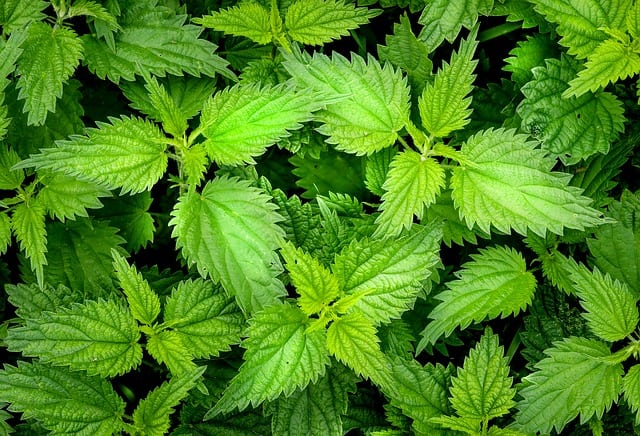
Stinging Nettle
Where to find: In your backyard!
Cost: FREE
How to Prepare
Harvest with gloves, as it’s called stinging nettle for a reason!
- Step 1: Put 1 tbsp. in a cup and bour 1 cup boiling water over it
- Step 2: Steep 15 – 20 minutes
- Step 3: Strain out leaves, sweeten if desired, and drink
Alternatively, use 1 cup leaves in a quart jar, and steep overnight.
Use for: General nutrition, seasonal allergies, pregnancy tea.
Dose: 1 cup of tea, 1 – 3 times daily. Or 1 quart infusion, 3 – 4 days a week.
Safety: Safe for all ages.
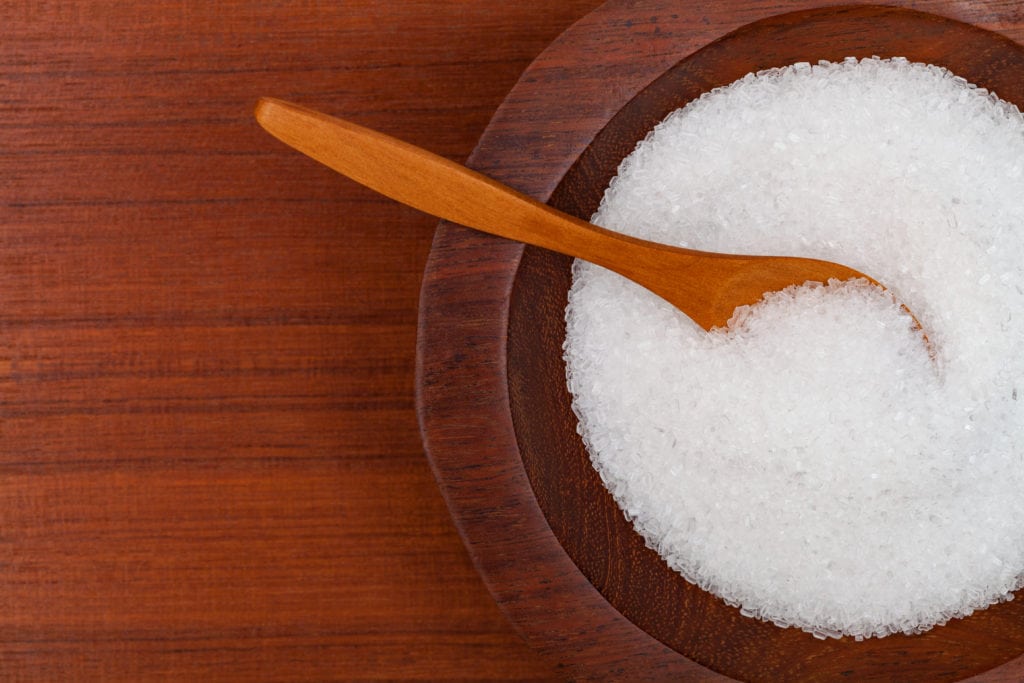
Epsom Salts
Where to find: In the pharmacy aisle of any store (or HERE)
Cost: $5 – $7 at the grocery store (possibly less for a small bag)
How to Prepare
- Step 1: Pour 1/2 cup in a warm bath
- Step 2: Soak for 15 – 20 minutes
Can also be added to a foot bath, or a small tub to soak feet, hands, etc.
Use for: Sore or sprained ankles or wrists, general detox, relaxation, promote restful sleep, constipation
Dose: One bath, 2 – 4 times per week
Safety: Talk to a doctor if you are diabetic before using any form of magnesium
Hydrogen Peroxide
Where to find: Any pharmacy section (or HERE)
Cost: $1 – $3 for a medium bottle
How to Prepare
- Earaches: Pour a small amount in the ear while lying on your side. Let sit for 5 min; drain.
- Cuts and scrapes: Put a small amount on a cloth and dab the wound gently to clean.
Use for: Cleaning wounds, earaches
Dose: Small amount as needed
Safety: For external use only
Get Started!
Learning to use natural remedies is truly not hard. With these items that you can get at any store or your own backyard (and spend under $20 for all), you can treat almost any typical issue, from minor wounds and burns, to tummy aches and earaches, to general health support.
Natural health is better, because you get to choose what your family needs, when they need it. And, no side effects for most options! It’s much safer, and often more effective.
If you’ve been hesitating, now’s the time to take the plunge. Watch how much more vibrant your health gets when you switch!

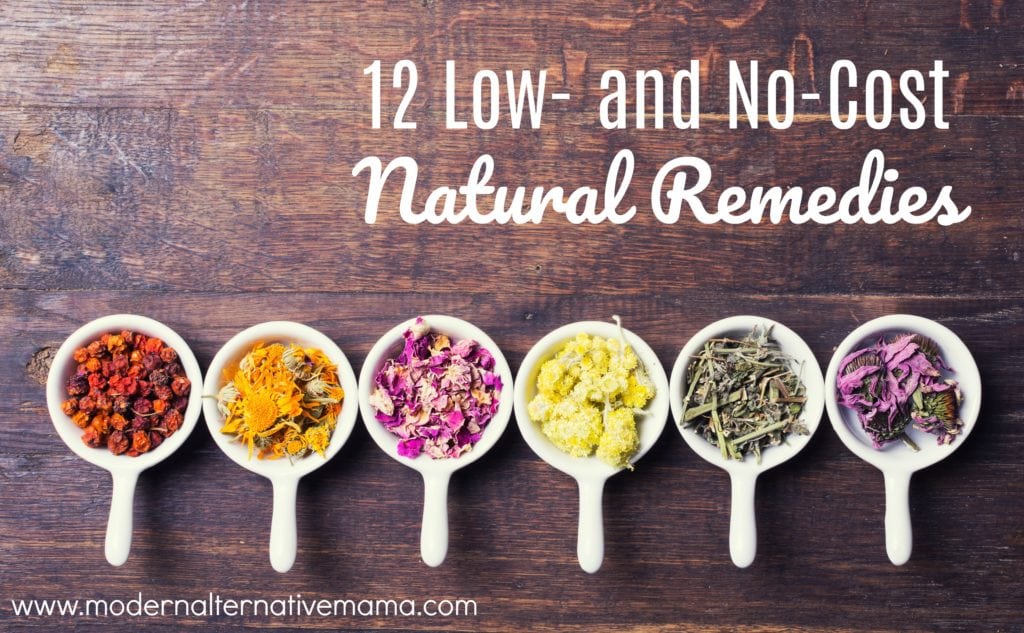





Hi,
Thank you for your effort in natural medicine and vaccines 🙂
I’m learning wild esible plants and herbs, for 2 years now, last year I’m also making meals from them (including tea!)
I have suggestions for some grocery plants, dont know if they grow in your country.
Instead of ginger, we use horse raddish (https://sl.m.wikipedia.org/wiki/Navadni_hren)
Dandelion, nettle and plantain, plus yarrow (https://sl.m.wikipedia.org/wiki/Navadni_rman) are the top 4 herbs in nature, they grow almost everywhere 🙂
Also juniper oil we use for stomach ache or troubles with digestion.
And st.john wort (https://sl.m.wikipedia.org/wiki/Šentjanževka) in tea for calming, especialy mentaly, and oil from it, for burns, fresh bruises, bumps. I use this oil also for massage of my son’s tummy, also helps 🙂
Hope translations are good x)
Keep on writting and fighting for natural living 🙂
thank u, all the best